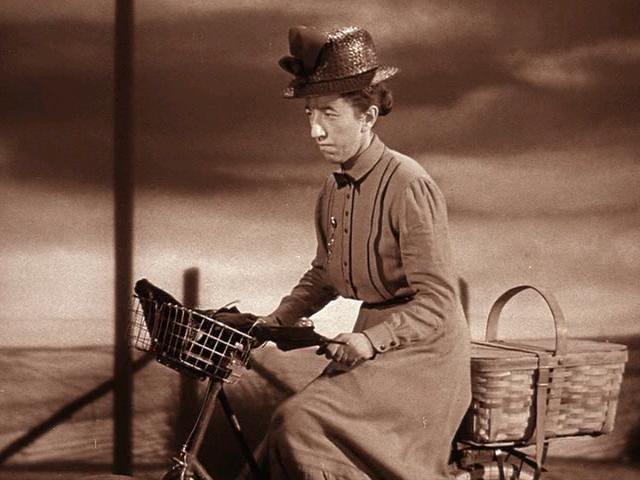DING-DONG
On May 16, 1985, I got home from work, tucked the car away in the garage, locked the gate, unlocked the front door, found Clae in the family room, and said “Ding-dong”. She replied “Yeah, I heard”. We went on with our evening rituals.
On the way home I had heard that Margaret Hamilton, who played the Wicked Witch of the West in The Wizard of Oz, had died. Clae and I had watched The Wizard of Oz more than once together and Clae had a particular non-movie-actress individual that she referred to as the Wicked Witch of the West, so I knew she would be interested. I chose to reveal it by truncating the phrase “Ding-dong, the witch is dead”.
Between people who have spent years together, this method of shorthand or code or keywords in communication is not unusual. “Follow the yellow brick road” as directions, “Pay no attention to the man behind the curtain” when something reeks of smoke and mirrors, and “I don’t think we’re in Kansas anymore” when we seemed to be lost, were regular parts of our conversations.
In the years that followed in the work environment, we had many lively conversations about the progress of computer software toward understanding human communication. The Turing test suggested that a computer would be judged to be intelligent if it could conduct a conversation with a human and the human could not determine whether he was talking to another human or a computer. In the late ‘80s, some folks thought that test would be passed very soon, but I was pessimistic. Often I would tell the story of “Ding-dong” as an example of the kind of communication that computers would not soon (if ever) be able to understand.
Think of the complexity of it. To begin with, a computer would have to understand basic vocabulary, grammar and sentence structure in the language of choice. Then it would need all the world’s knowledge – everything ever written, recorded, or said in that language. Then it would need an understanding of concepts like sarcasm, metaphor, humor, subtlety, parable, etc. The scope of knowledge needed makes one wonder how even humans manage to talk!
Of course, humans don’t know everything in the world. But, any given pair who engage in conversations have a common set of knowledge that grows as the relationship grows. When you encounter a stranger, the level of your conversation changes to reflect the fact that your common set of knowledge is assumed to be very small. Continued conversations allow each pair to adjust that assumption. Can computers be expected to do that? I don’t know.
Well, another generation has gone by since Margaret Hamilton died and we’ve come a long way. Optical character recognition has gotten good enough that many millions of pages of newspapers have been digitized, scanned, and indexed and are available for on-line search. Voice input can be converted to digital text with accuracy above 90%, depending on the subject matter, amount of technical vocabulary, and percentage of place and person names. Voice input of properly structured commands can control computers. Computers can “read” digitized text and vocalize the words with a pretty fair integrity.
However, the Turing test has not yet been passed. The response to “Ding-dong” would still be “Say what?” or something like that.
Now, in the interest of full disclosure I have to tell you another story. A few years after 1985 I was telling “Ding-dong” at a party and Clae was listening. I finished explaining how cleverly we had communicated and how computers would never be able to comprehend such sophisticated speech. Clae looked at me and said “I didn’t know that’s what you meant!”
Turns out that in the period just before that day in May I had developed a habit of ringing the doorbell when I got home, just to announce my arrival. Clae finally got annoyed enough to ask me to stop and I did. That day when I said “Ding-dong” (the witch is dead), Clae responded “Yeah, I heard” (that you didn’t ring the doorbell).
See what I mean? The Turing test may never be passed!

Margaret Hamilton as Miss Gulch in The Wizard of Oz

Margaret Hamilton as the Wicked Witch of the West in The Wizard of Oz
[Visitor number
]